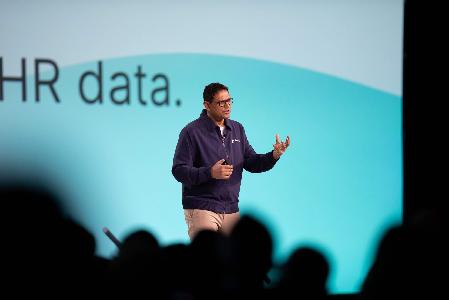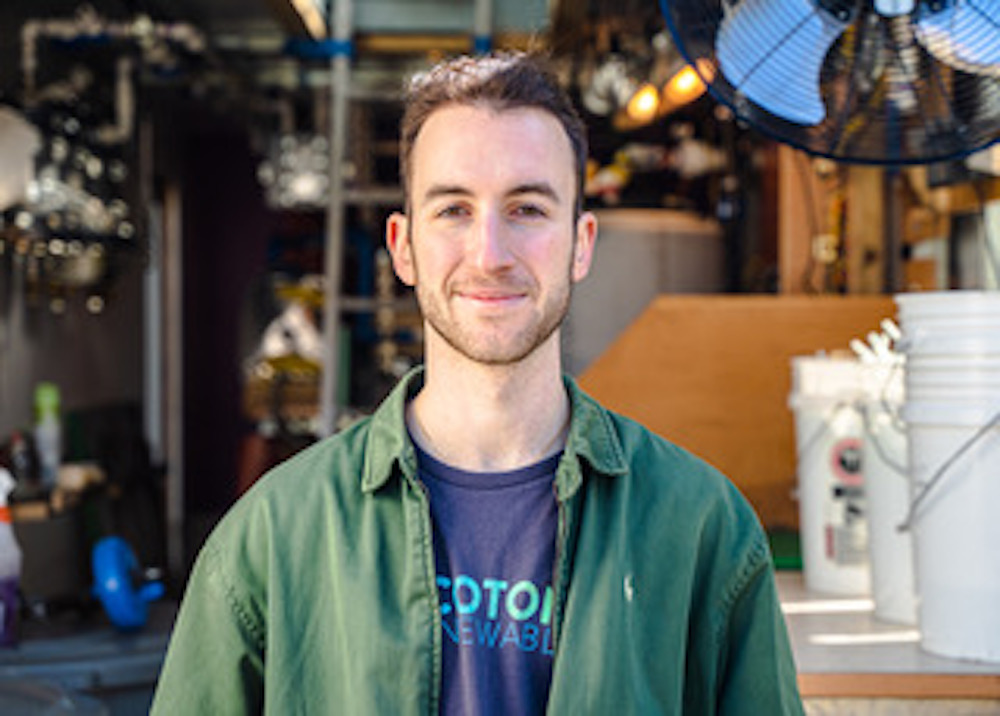Ecotone Renewables won the Pitt Sustainability Challenge
University of Pittsburgh called on contestants to write a plan to help it toward its goal of achieving carbon neutrality by 2037. Proposals included a range of approaches, from creating personalized dashboards for reducing one’s carbon footprint to creating energy-efficient freezers.
Ecotone Renewables‘ proposal was to use its Anaerobic Digestion Technology to divert carbon emissions by converting local food waste into nutrient-dense, ready-to-use fertilizer. After months of competition, the startup was chosen as the winner during a public pitch event on Sept. 14. In addition to the title, Ecotone took home a $300,000 implementation grant to be used to advance its project.
Pitt professors receive $3.2 million grant to create a ‘digital twin of the bladder’
University of Pittsburgh Swanson School of Engineering Professor Anne Robertson and UPMC Professor of Urology Naoki Yoshimura have been conducting research to find ways to prevent irreversible complications including urinary retention, bladder stones and kidney failure. A step in the right direction, they say, would be developing a digital twin of a bladder so that researchers can simulate treatments and determine the best course of action for patients.
With a new $3.2 million grant from the National Institutes of Health, they, along with other Pitt professors, can spend the next five years gathering data and simulating treatments.
“By creating this computational model of a real physiological system, we can gain data in real time and try different interventions to prime our model so it can be used on a patient-specific basis in the future,” Robertson told Pitt. “The idea would be that a medical doctor could put an individual’s own measurements and clinical information into the model and then provide a patient-tailored treatment.”
Jewish Healthcare Foundation approves over $1M in grants
The Jewish Healthcare Foundation has approved $1.1 million in grants to support initiatives including the Precision Public Health Collaboratory, Phase II of the 10.27 Healing Partnership, the Patient Safety Technology Challenge 2.0, the establishment of the Justin Reid Ehrenwerth Award, continued support of the Allegheny Conference on Community Development, and to continue the JHF Feinstein Fellowships and internships.
The $1.1 million includes funding for these tech initiatives:
- $100,000 for the to-be-launched Precision Public Health Collaboratory, which will act as a hub that merges Carnegie Mellon University’s computer science expertise with Pitt’s expertise in data science
- $275,000 to organizer an annual Grand Challenge, which will reward the progress of the teams that competed in Patient Safety Technology Challenge-sponsored events and help the teams to the next stages of development and commercialization
- $68,000 in general operating support for the Allegheny Conference on Community Development
- $225,000 per year to fund internships and fellowships, such as the Patient Safety Fellowship
Forever opens $5 million facility near Green Bay
Forever Inc., a Pittsburgh digitization firm that converts over 2 million VHS tapes, films, photos and negative images to a digital equivalent per year, announced that it’d be opening a new $5 million digitization building near Green Bay, Wisconsin. Currently the company employs 30 employees, but according to the announcement, with this new building, that number may rise to 125 workers over the next few months and years.
The project has been made possible in part due to the firm receiving tax increment financing from the Village of Hobart, Forever CEO and founder Glen Meakem said.
“After many months of planning and construction, my team and I are thrilled to bring our new state-of-the-art digitization facility online,” Meakem said in the announcement. “The expanded footprint and new equipment will enable significant growth of the FOREVER digitization business and our entire memory-keeping platform in the months and years ahead.”
Tecum Capital’s 2024 plans
According to the Pittsburgh Business Times’ reporting, Pittsburgh private equity firm Tecum Capital plans to raise new funding in 2024. The plan is to raise an amount similar to the $305 million SBIC fund it raised in late 2021, most of which has already been invested, per the report.
Tecum Capital draws its funding from banks such as Morgan Stanley, Huntington National Bank, TriState Capital Bank and NexTier Bank, and the Wexford-based firm’s leaders believe that there’s a strong chance they’ll receive continued support.
“We still think there is a strong appetite for banks to invest,” Tecum Managing Partner Stephen Gurgovits Jr. told the Times. “We are anxiously awaiting the release of new CRA [Community Reinvestment Act] rules, and we believe there could be an opportunity for banks to gain more broadly and consistently approved CRA credits for investing in an SBIC fund, like ours. Further, we have a demonstrable track record of providing both good returns and good deal flow to our bank investors.”
More Money Moves
Technical.ly also spotted these raises and acquisitions:
- McCandless-based legaltech company LegalSifter, which makes a software that uses AI to review contracts, has acquired contract lifecycle management firm Akorda, based in San Francisco.
- Finish Robotics, a 2023 RealLIST Startups honoree, raised around $900,000, according to an SEC filing.
- FoodSocial, a recipe creator platform, raised nearly $400,000, according to an SEC filing.
Join the conversation!
Find news, events, jobs and people who share your interests on Technical.ly's open community Slack

Pittsburgh weekly roundup: 412 Food Rescue's new CEO; Inside Diversitech; Fentanyl sensor innovations

The Affordable Connectivity Program just ended. What’s next for the 763,000 Pennsylvanians who depended on it?

RealLIST Connectors 2024: Meet 20 leaders spreading innovation throughout Pittsburgh



